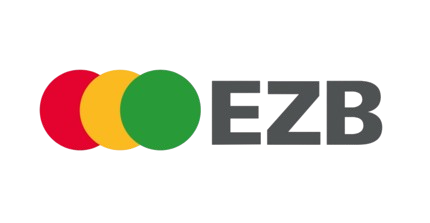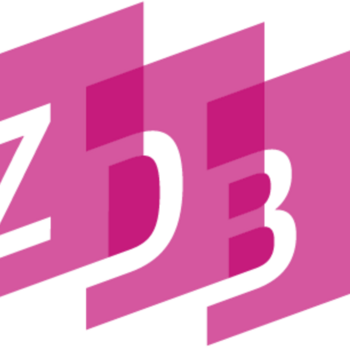Algoritamska intermedijacija i remodeliranje vrijednosti odlučivanja u sistemu visokog obrazovanja / Algorithmic Intermediation and Remodeling of Decision-Making Values in Higher Education System
DOI:
https://doi.org/10.48052/19865244.2023.1.231Keywords:
algorithmicizing, digitalization, higher educationAbstract
The paper investigates the effects of digitalization on teaching and educational processes and the possible negative effects that these processes have. For the Sarajevo Canton and the rest of Bosnia and Herzegovina, digitalization in education has already begun and it is important to fully understand the potential threats it poses. Decision-making processes were a human competence where different programs were used only as a tool to aid the process of reaching the best decisions. Today, algorithms are decision-makers where humans perform tasks of justifying algorithm’s decisions and preventing the upheaval caused by the increasing social inequality caused by algorithmicizing. The main argument is that of higher education without understanding of the underlining algorithmicizing of its processes could consequently lead to social inequality and wrong decisions. On the other hand, the lack of awareness of accelerated digitization can lead to lagging behind in digitization processes and loss of competitiveness in an increasingly global university market. This paper explains algorithmic intermediation and remodeling of decision-making values and points out threats and needs in the higher education. It should serve educational institutions and policy makers as a guideline in the adoption of future strategies on digitization processes in higher education as well as provide the base for future discussions focusing on Global Digitization Trends within the Bosnian and Herzegovinian higher education area and its policies, laws, and strategies with a recommendation for the Digitization Action Plan in higher education in Canton Sarajevo.
References
Brooks, R. (2021). Artificial Intimacy. Virtual Friends, Digital Lovers, and Algorithmic Matchmakers. Columbia University Press.
Council of Europe. (2019, December 19). Council of Europe. Retrieved from Retrieved from Council position and findings on the application of the General Data Protection Regulation (GDPR): https://data.consilium.europa.eu/doc/document/ST-14994-2019-REV-1/en/pdf
Council of Europe. (2021). Study on the Impact of Digital Transformation on Democracy and Governance. Strasbourgh: Council of Europe. (p. 28). Strasbourgh: European Committee on Democracy and Governance (CDDG).
Crawford, K. (2021). Power, Politics, and the Planetary Costs of Artificial Intelligence. Atalas of AI (p. 127). New Haven, CT: Yale University.
Dillon, S. (2010, August 31). The New York Times. Retrieved from Method to Grade Teachers Provokes Battles: https://www.nytimes.com/2010/09/01/education/01teacher.html
Ewing, J. (2011). Mathematical Intimidation: Driven by the Data. American Mathematical Society, 667‒673.
Hibert, M. (2020). Kritička medijska i informacijska pismenost: medijska i informacijska pismenost u biblioteci. In E. Vajzović, MEDIJSKA I INFORMACIJSKA PISMENOST: ISTRAŽIVANJE I RAZVOJ (pp. 20‒26). Sarajevo: Fakultet političkih nauka Univerziteta u Sarajevu.
Juergens, P., & Stark, B. (2017). The Power of Default on Reddit: A General Model to Measure the Influence of Information Intermediaries. POLICY AND INTERNET, Volume 9 Issue 4 Pages 395-419.
Kafka, F. (1984). The trial. London: Penguin.
Komljenović, J. (2020). The future of value in digitalised higher education: why data privacy should not be our biggest concern. SPRINGER, Early Access.
Ministarstvo Visokog obrazovanja, nauke i mladih Kantona Sarajevo. (2022). Strategy for media and information literacy in area of education of Canton Sarajevo. Retrieved from Internal document.
Miroshnichenko, A. (2020). The media after Trump: manufacturing anger and polarization. . Toronto: Postjournalism and the Death of Newspapers.
Murumba, J., & Elyjoy, M. (2017). Big Data Analytics in Higher Education: A Review. The International Journal of Engineering and Science, 14‒21.
O’Neil, C. (2016). Weapons of math destruction: how big data increases inequality and threatens democracy. New York: Crown Publishers.
Prinsloo, P., & Slade, S. (2014). Educational triage in higher online education: Walking a moral tightrope. The International Review of Research in Open and Distributed Learning, 306–331.
Rainie, L., & Anderson, J. (2017). The Future of Jobs and Jobs Training. Retrieved from Pew Research Center: https://www.pewresearch.org/internet/wp-content/uploads/sites/9/2017/05/PI_2017.05.03_Future-of-Job-Skills_FINAL.pdf
RAND Corporation. (2020, 12 22). RAND Corporation. Retrieved from Value-Added Modeling: https://www.rand.org/education-and-labor/projects/measuring-teacher-effectiveness/value-added-modeling.html
Stalder, F. (2018). The Digital Condition. 2018: Cambridge: Polity Press.
Stark, B., Stegmann, D., Magin, M., & Jürgens, P. (2020). Are Algorithms a Threat to Democracy? The Rise of Intermediaries: A Challenge for Public Discourse. Berlin: AlgorithmWatch.
The American Statistical Association. (2014, April 8). ASA Statement on Using Value-Added Models for Educational Assessment. Retrieved from American Statistical Association: https://www.amstat.org/asa/files/pdfs/POL-ASAVAM-Statement.pdf
Vajzović, E. (2020). Medijska i informacijska pismenost: istraživanje i razvoj. Sarajevo: Fakultet političkih nauka Univerziteta u Sarajevu.
Vajzović, E., Hibert, M., Turčilo, L., Vučetić, V., & Silajdžić, L. (2021). Medijska i informacijska pismenost: dizajn učenja za digitalno doba. Sarajevo: Fakultet političkih nauka Univerziteta u Sarajevu.
Zerilli, J., Knott, A., Maclaurin, J., & Gavaghan, C. (DEC 2019). Algorithmic Decision-Making and the Control Problem. MINDS AND MACHINES, Volume 29 Issue 4 Pages: 555-578.
Downloads
Published
How to Cite
Issue
Section
License
Copyright (c) 2023 Pregled: časopis za društvena pitanja / Periodical for social issues

This work is licensed under a Creative Commons Attribution-NonCommercial 4.0 International License.














